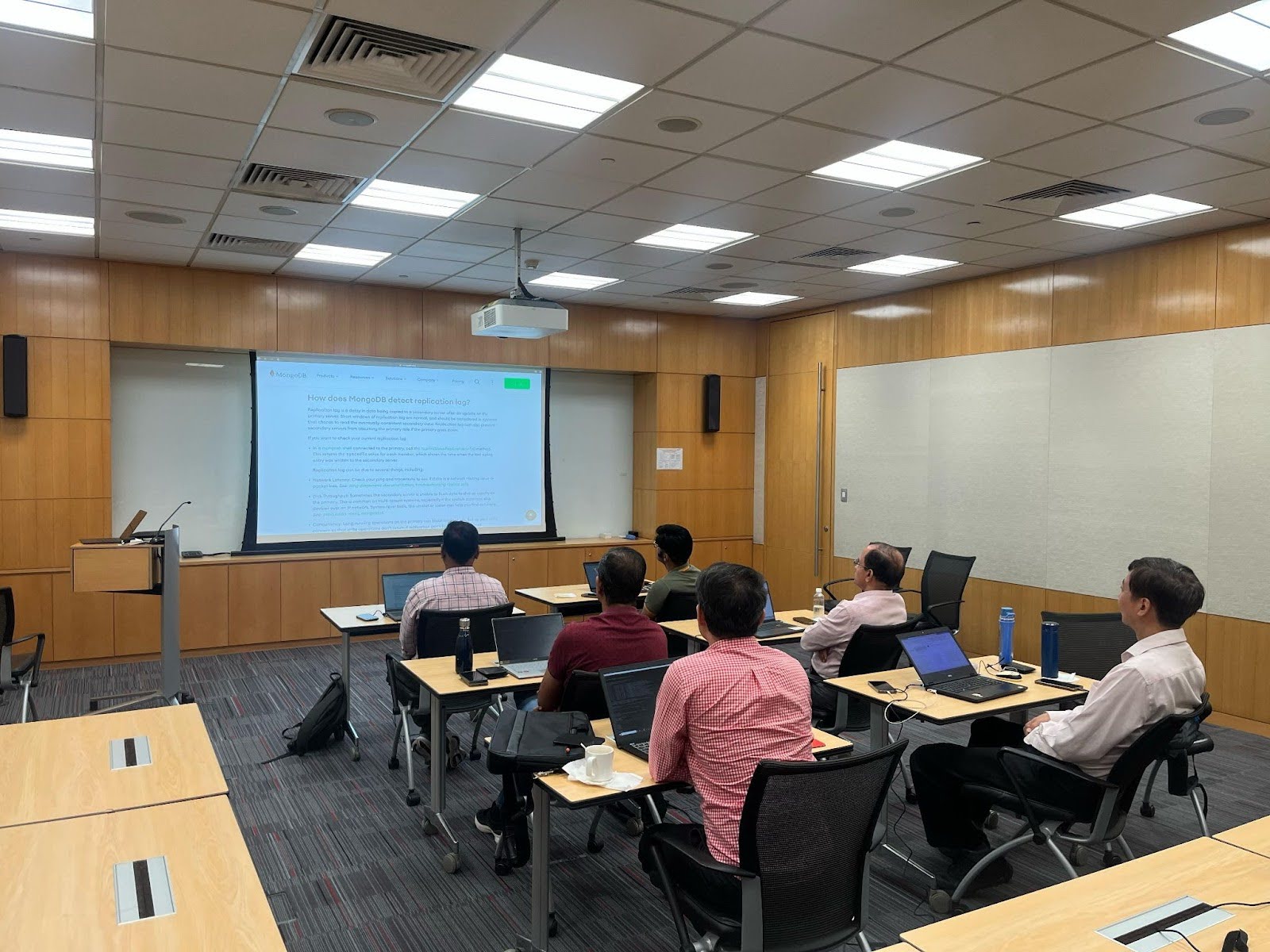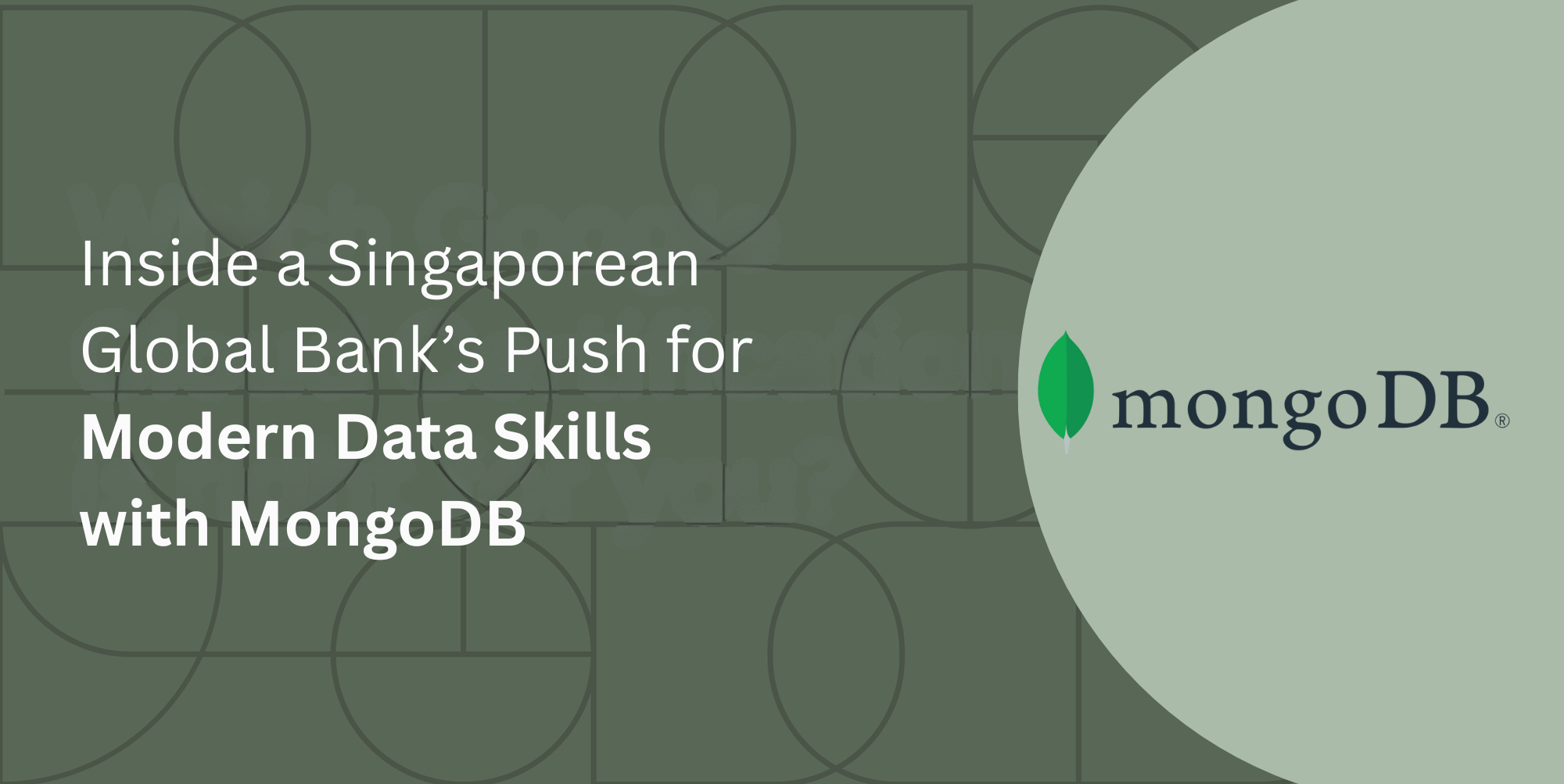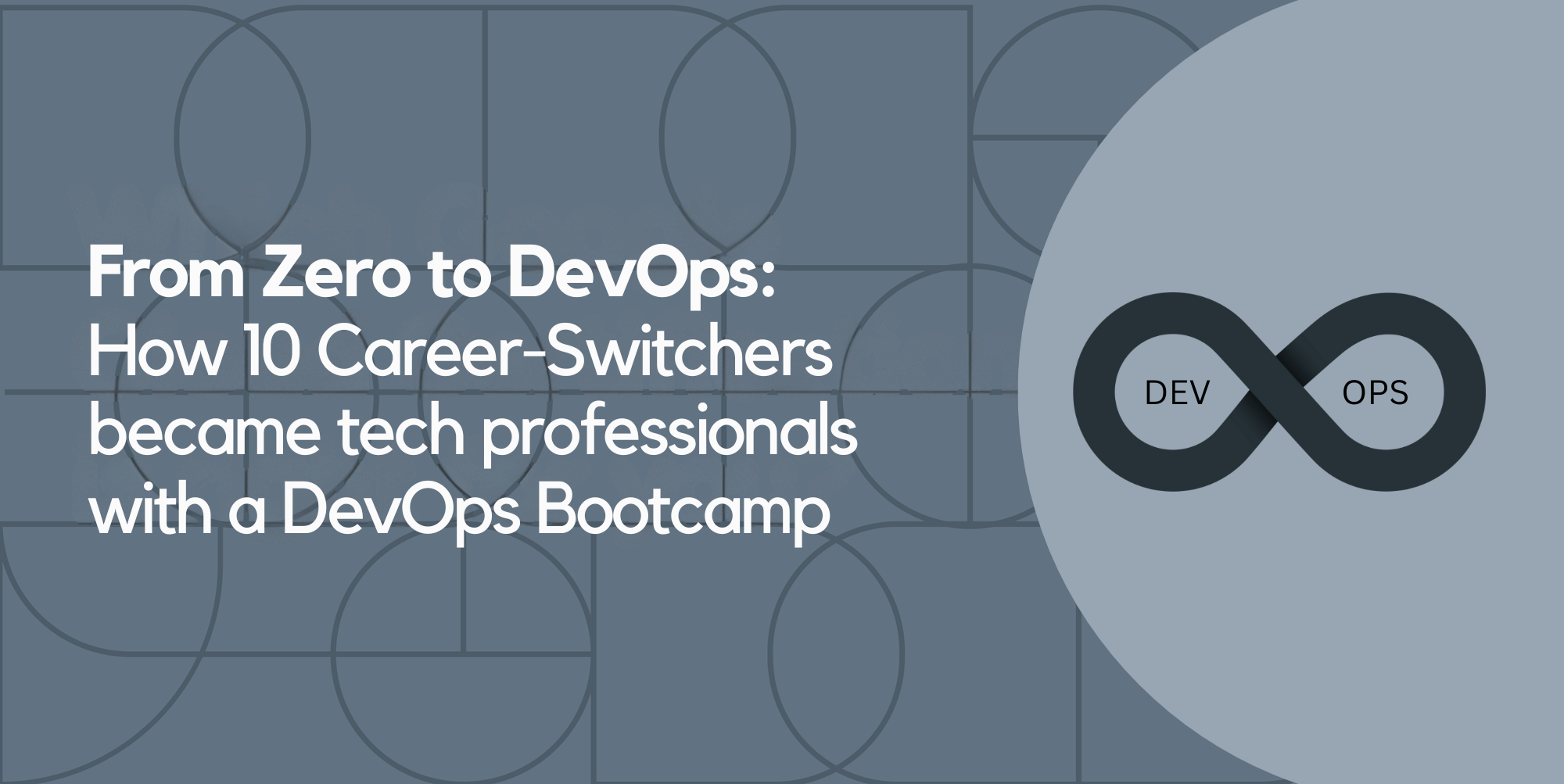Overview:
Bank of America, Singapore, needed to upskill its database administration team as they transitioned from SQL-based databases to NoSQL solutions. A tailored onsite, 1:1 MongoDB administration training was conducted for 7 participants, ensuring hands-on learning with direct trainer interaction. By the end of the training, all participants were able to deploy and manage MongoDB independently, preparing them for upcoming NoSQL-based projects in the Asia region.
About the Client
Client: Bank of America, Singapore
Industry: Banking & Financial Services
About the Training
Program: MongoDB Administration for Lateral Entry
Duration: 2 Days
Delivery Mode: Onsite , (1:1 training format)
Participants: 7 database administrators
Why This Training Was Needed
The client’s team was transitioning from SQL-based databases to NoSQL solutions. They required MongoDB administration training to:
- Understand the fundamentals of NoSQL databases.
- Gain hands-on experience in deploying and managing MongoDB.
- Adapt their existing SQL skills to the new database system.
Personalization
Analysis & Assessment
Client’s Pain Points
The Bank of America Singapore database team, with 15+ years of SQL experience, faced challenges in transitioning to MongoDB due to its document-based structure and schema-less design. Key pain points included:
- Lack of NoSQL Knowledge: The team needed a foundational understanding of MongoDB.
- Mindset Shift: Moving from structured SQL tables to flexible JSON documents was a challenge.
- Querying Differences: SQL joins vs. MongoDB’s aggregation framework required a new approach.
- Scaling Strategies: Transitioning from vertical scaling (SQL) to horizontal scaling (MongoDB).
- Business Urgency: With MongoDB adoption in Asia region projects, upskilling was critical.
A structured, hands-on training program was needed to bridge these gaps and ensure a smooth transition.
Training Development
The training was based on NobleProg’s MongoDB Admin program (Course Link), but was carefully customized to align with the team’s SQL expertise, industry-specific needs, and hands-on learning objectives.
- Bridging SQL to MongoDB: The training used direct comparisons to help participants seamlessly transition from relational databases to NoSQL. Topics included:
- Tables vs. Collections, Rows vs. Documents – Understanding MongoDB’s document model.
- SQL Joins vs. Embedded Documents & References – Optimizing data relationships.
- ACID Transactions vs. MongoDB’s Multi-Document Transactions – Ensuring data integrity in banking applications.
- Industry-Specific Use Cases: Since the team worked in financial services, the curriculum incorporated real-world banking scenarios, such as:
- Managing customer data efficiently with MongoDB’s flexible schema.
- Implementing transaction consistency using multi-document transactions for banking workflows.
- Scaling strategies for high-volume financial data processing.
- Hands-On Deployment Labs: The training emphasized practical learning, enabling participants to:
- Install, configure, and deploy MongoDB on-premises.
- Set up replica sets and sharding for high availability and scalability.
- Optimize performance using indexing and query tuning techniques.
- Debug and troubleshoot real-world MongoDB issues.
By the end of the training, participants had built confidence in MongoDB administration, successfully deployed working databases, and were ready to support upcoming NoSQL projects within the organization.
Delivery & Engagement
How We Catered to the Audience
- The participants were experienced database administrators, so the training was designed to ease their transition into NoSQL.
- A 1:1 training format ensured personalized guidance for each participant.
- Onsite training enabled real-time discussions, troubleshooting, and hands-on collaboration.
Pedagogy & Delivery Style
- Parallel learning approach – SQL structures were directly compared to MongoDB document models for an easier transition.
- Interactive labs – Each participant worked on a MongoDB deployment project to gain hands-on experience.
- Focused on how traditional DBA roles translate to NoSQL, helping participants apply their existing knowledge effectively.
Challenges & Hands-on Learning
- The biggest hurdle was breaking the SQL mindset and adapting to MongoDB’s schema-less nature.
- Some initially struggled with query structuring, but practical exercises and troubleshooting helped them overcome this.
- On-premises deployment: Each participant deployed MongoDB databases during the training.
- Final lab challenge: Participants independently deployed and troubleshot a MongoDB instance to reinforce practical skills.
- Self-learning resources: Comprehensive post-training documentation was provided for continued learning.
- Ongoing support: Trainers remained available for follow-up assistance, ensuring a smooth transition into MongoDB administration.
Results
Participant Engagement & Performance
- 100% of participants completed all labs successfully.
- All trainees independently deployed and debugged MongoDB databases.
- They found the training engaging and highly relevant to their work.
Business Impact
- The team is now equipped to manage NoSQL projects for the Asia region.
- The training has enabled the company to take on MongoDB-based projects, increasing their service offerings.
Feedback & Testimonials
- Participants expressed high interest in further MongoDB learning.
- A participant shared:
“The training was eye-opening! We transitioned from SQL thinking to NoSQL efficiently, and the hands-on labs made all the difference.”

.webp)






